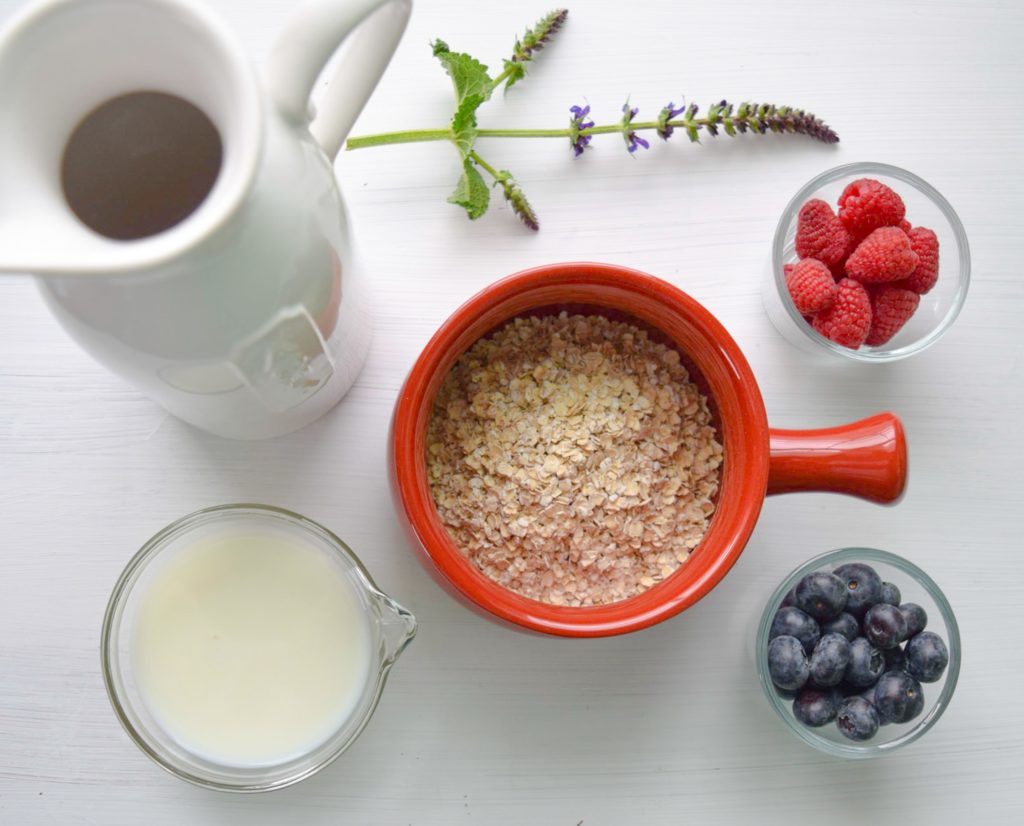There is such a large number of milk alternatives on the market right now, it can be a little confusing, right? With a huge increase in the number of allergies, intolerances and changes in personal preferences, more and more people are choosing to consume non-dairy milk. With over 20 types of animal and plant-based milk types on the market, picking the right one for you, your tastes and your health preferences can be tricky. Below we are going to walk you through seven of the most popular milk alternatives out there, explaining their health benefits and just how many calories you can find in each! You might be surprised!

Dairy (Cow’s) Milk
Regardless of the countless number of milk varieties you can find on supermarket shelves these days, cow’s milk still reigns supreme as the most popular type. The number of health benefits is extremely extensive, boasting a great source of calcium, protein, B-vitamins, vitamin-D, potassium and phosphorous.
Despite its large number of benefits, an estimated 5% of Caucasians and up to 75% of non-Caucasians living in Australia are lactose intolerant. It has been more well known in recent times that much of the population also hold an intolerance to casein, a protein in cow’s milk.
Grass-fed milk is generally the better option to go for, coming from cows who are living a much healthier life, eating a much more natural diet. Grass-fed milk also contains higher levels of omega 3, CLA and vitamin K2. Vitamin K2 is essential in helping our body utilise the calcium we consume, as well as helping to fight chronic disease and inflammation.
When comparing the different fat content of cow’s milk, full cream milk contains approximately 3.5% fat, whereas lite milk contains approximately 2%. Skim milk, contains the least with approximately 0.15%.
Soy Milk
Soy milk, out of the list of alternatives we will be looking at below is definitely one of the longest-standing, well-known favourites. In broad terms, it has been surpassed by healthier options such as almond milk and coconut milk. Soy milk is considered a fairly good source of protein, as it contains all the amino acids we require in our diets. However, avoid soy protein isolate as it can also lead to deficiencies in a number of key vitamins and minerals such as vitamins E, D, B12, calcium, magnesium, manganese, molybdenum, copper, iron and zinc. The flavour of soy milk has definitely come a long way, with many of the well-known, popular brands tasting much more ‘normal’ in comparison to cow’s milk.
Overall, soy is one of the lesser recommended milk types due to its higher levels of sugar and processing. It contains ‘phytic acid’, being an acid that can actually block absorption of essential minerals into the body in the intestinal tract. The soy in this milk is also mostly GMO soy – which can disturb natural hormone production in the body. Small amounts, like with many lesser recommended foods in terms of their health qualities is ok to consume.

Almond Milk
In recent times almond milk has really grown in ease of access and popularity when it comes to the wide range of plant-based milk on the market. Almond milk now makes up almost 50% of the non-dairy milk market in Australia.
Almonds are jam-packed with nutrition like protein, fibre, antioxidants and healthy fats. But when it comes to almond milk, to provide yourself with the same nutritional value as a handful of almonds, you need to drink around six cups of almond milk for the same nutrition – that is 1.5 litres. That is a fair few morning coffees! Almond milk is low in saturated fat, a good source of calcium and contains no cholesterol.
It is recommended to go for unsweetened almond milk if you can for the healthier and lower-calorie option.
Coconut Milk
Coconut milk has a relatively smooth and creamy taste to it, generally not tasting as ‘coconutty’ as you might expect. If you are a first-timer with plant-based kinds of milk, coconut milk may be a good option to go for, as it generally has a fairly calm, neutral flavour without the often-unpleasant aftertaste you might expect. Coconut milk is loaded with medium-chain triglycerides (an easily digested fat that is thought to aid burning fat), potassium, a host of fortified vitamins, and calcium. Like almost all other plant-based milk types, avoid any with sugar added, going with the unsweetened variety. Coconut milk is lower in protein and calcium generally than almond milk.
Most coconut milk packaged in cartons is blended with water to give it a consistency similar to that of cow’s milk. It has even less protein than almond milk. Don’t mistake coconut milk canned with the milk version in a bottle or carton. The canned coconut milk is what you use for culinary, recipe purposes such as curries and laksas.
After a tasty tip? If you want a better-tasting option than just almond milk or coconut milk by themselves, try mixing almond milk with coconut milk. You might find you end up with a much better taste with the two of these blended rather than either one separately. Better yet, try the Nutty Bruce option to find it already pre-mixed. Yum!
Rice Milk
Rice milk followed along after soy milk as one of the earlier cow’s milk alternatives to be found on supermarket shelves. It gained popularity due to its much more pleasant aftertaste. Overall, if you are aiming to lose weight or control your sugar, this probably isn’t the milk for you.
Rice milk is a fairly watery, sugary milk substitute. Rice milk doesn’t contain too much in the way of protein. It may have some calcium and other nutrients added in as fortification.
When comparing to other milk alternatives, there are better and more nutritionally dense ones out there.

Oat Milk
One of the newer kids on the block when it comes to plant-based milk alternatives is oat milk. Oat milk is a tasty option made from blending oats and water together. This derivation is lactose-free, low in saturated fat and contains a soluble fibre that can help in cholesterol-lowering. The protein found in this milk is also higher than that in soy, almond or coconut milk! All sounding pretty good right?
Oat milk is an extremely versatile option and is great for use in smoothies, baking, tea and coffee. However, it is important to remember that it isn’t gluten-free!
Pea Protein Milk
You may have quickly noticed that a large number of the milk alternatives on the market are derived from nuts! So, what about a higher protein, more nutritionally dense alternative that is also nut-free and dairy free? Pea protein milk might be the one for you!
At approximately 8g of protein per serve, this is definitely one of the more protein-packed kinds of milk on the market. It is lower in fat and sugar than regular milk also, as well as containing omega 3 fats, along with iron, vitamin D and calcium. To top it off, pea protein milk has a great, smooth, creamy flavour.
Comparing the calories
Each of the following milks contain the following calories per serve (250ml):
Cow’s full cream milk: 158 calories
Cow’s lite milk: 113 calories
Cow’s skim milk: 90 calories
Soy milk: 122 calories
Unsweetened almond milk: 40 calories
Sweetened almond milk: 75 calories
Unsweetened coconut milk: 45 calories
Sweetened coconut milk: 155 calories
Rice milk: 137 calories
Oat milk: 120 calories
Pea protein milk: 82 calories
Our overall thoughts…
Ultimately, all of these kinds of milk are going to provide a nutritional value of some sort and assist in adding flavour and texture to your cereal, smoothies and coffees. Like with many products, it is crucial to have a comparative check of the ingredients lists as many can be high in sugar and contain thickening agents like guar gum and carrageenan. These are often the ingredients that cause stomach and digestive upsets. With that in mind, it’s best to choose the unsweetened version, and if necessary, add in natural sweeteners.
Often these ‘healthier’ plant-based milk alternatives can be deemed more processed than not, so read the label carefully and choose your milk based on your personal preferences and health needs. The lowest calorie milk is unsweetened almond milk, but not necessarily the most nutrition-dense! Also, keep in mind – cow’s dairy milk is absolutely not ‘bad for you’. In this day and age, it is just based on your personal preferences and needs whether it be for environmental, health or personal reasons!
For plenty more health and wellness information, tips and tricks don’t forget to join us today!


